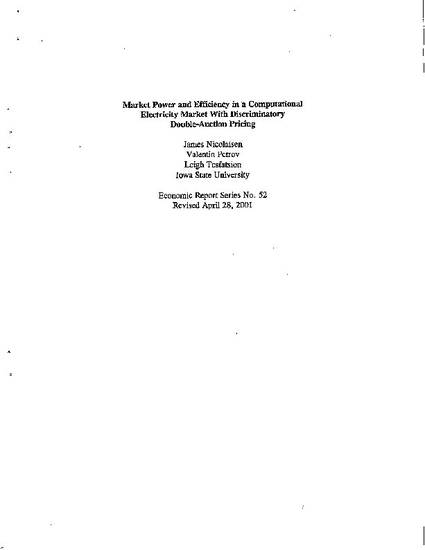
Abstract: This study reports experimental market power and efficiency outcomes for a computational wholesale electricity market operating in the short run under systematically varied concentration and capacity conditions. The pricing of electricity is determined by means of a clearinghouse double auction with discriminatory midpoint pricing. Buyers and sellers use a modified Roth-Erev individual reinforcement learning algorithm (1995) to determine their price and quantity offers in each auction round. It is shown that high market efficiency is generally attained and that market microstructure is strongly predictive for the relative market power of buyers and sellers, independently of the values set for the reinforcement learning parameters. Results are briefly compared against results from an earlier study in which buyers and sellers instead engage in social mimicry learning via genetic algorithms.
Available at: http://works.bepress.com/leigh-tesfatsion/67/

This is a working paper of an article from IEEE Transactions on Evolutionary Computation 5 (2002): 504, doi:10.1109/4235.956714